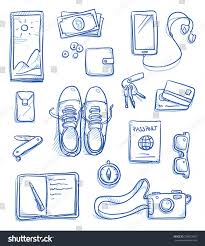
The Importance of Protecting Your Personal Belongings
When it comes to travelling, whether it’s a short trip or a long journey, one thing that is always a top priority is ensuring the safety of your personal belongings. From valuable items like electronics and jewellery to essential documents such as passports and tickets, losing or damaging these possessions can not only be financially costly but also emotionally distressing.
Having the right insurance coverage for your personal belongings can provide you with peace of mind and financial protection in case of unforeseen events. Whether you’re travelling by plane, train, car, or any other mode of transportation, accidents and incidents can happen at any time.
Imagine arriving at your destination only to realize that your luggage has been lost or stolen. Without insurance coverage, replacing those items can be a significant expense. With the right policy in place, you can file a claim and receive compensation to replace your belongings.
Moreover, some insurance policies also cover accidental damage to personal items. This means that if your smartphone falls and the screen cracks or your camera gets water damaged during your trip, you may be eligible for reimbursement for repairs or replacement.
Another important aspect to consider is theft protection. Unfortunately, thefts can occur in crowded places such as airports, train stations, or tourist attractions. By having insurance that covers theft of personal belongings, you can mitigate the financial impact of such incidents.
In conclusion, protecting your personal belongings with the right insurance coverage is essential for any traveller. It ensures that you are financially prepared for unexpected situations and allows you to enjoy your journey with greater peace of mind. Remember to review your insurance policy before each trip to confirm what is covered and make any necessary adjustments to safeguard your valuables.
Common Queries About Personal Belongings
- What are examples of personal things?
- What is the meaning of personal stuff?
- What is another word for personal belongings?
- What items are personal items?
What are examples of personal things?
Personal belongings encompass a wide range of items that are essential or valuable to an individual. Examples of personal things include electronic devices such as smartphones, laptops, and cameras, important documents like passports, identification cards, and travel tickets, as well as personal accessories such as jewellery, watches, and sunglasses. Clothing and footwear are also considered personal belongings, along with toiletries, medications, and other daily essentials. Essentially, anything that belongs to an individual and holds significance or utility in their daily life can be classified as a personal belonging.
What is the meaning of personal stuff?
“Personal stuff” refers to items that belong to an individual and are of personal significance or use. These belongings can range from everyday essentials like clothing, toiletries, and electronic devices to sentimental items such as photographs, gifts, or mementoes. Personal stuff holds value beyond their monetary worth, as they often carry memories or emotional attachments for the owner. Ensuring the safety and protection of one’s personal stuff is crucial, especially when travelling or in unfamiliar environments, making it essential to have appropriate insurance coverage in place to safeguard these possessions.
What is another word for personal belongings?
An alternative term commonly used to refer to personal belongings is “possessions.” Possessions encompass items that an individual owns or carries with them, ranging from everyday essentials to valuable possessions. This term is often employed in contexts where individuals need to describe or categorize their personal items for insurance purposes, travel documentation, or inventory management.
What items are personal items?
Personal items typically refer to belongings that are owned and used by an individual for personal use. These can include but are not limited to clothing, accessories, electronic devices such as smartphones and laptops, important documents like passports and identification cards, toiletries, jewellery, and any other items that are considered essential or valuable to the individual. It is important to identify and categorize your personal items before travelling to ensure they are adequately protected in case of loss, damage, or theft.
